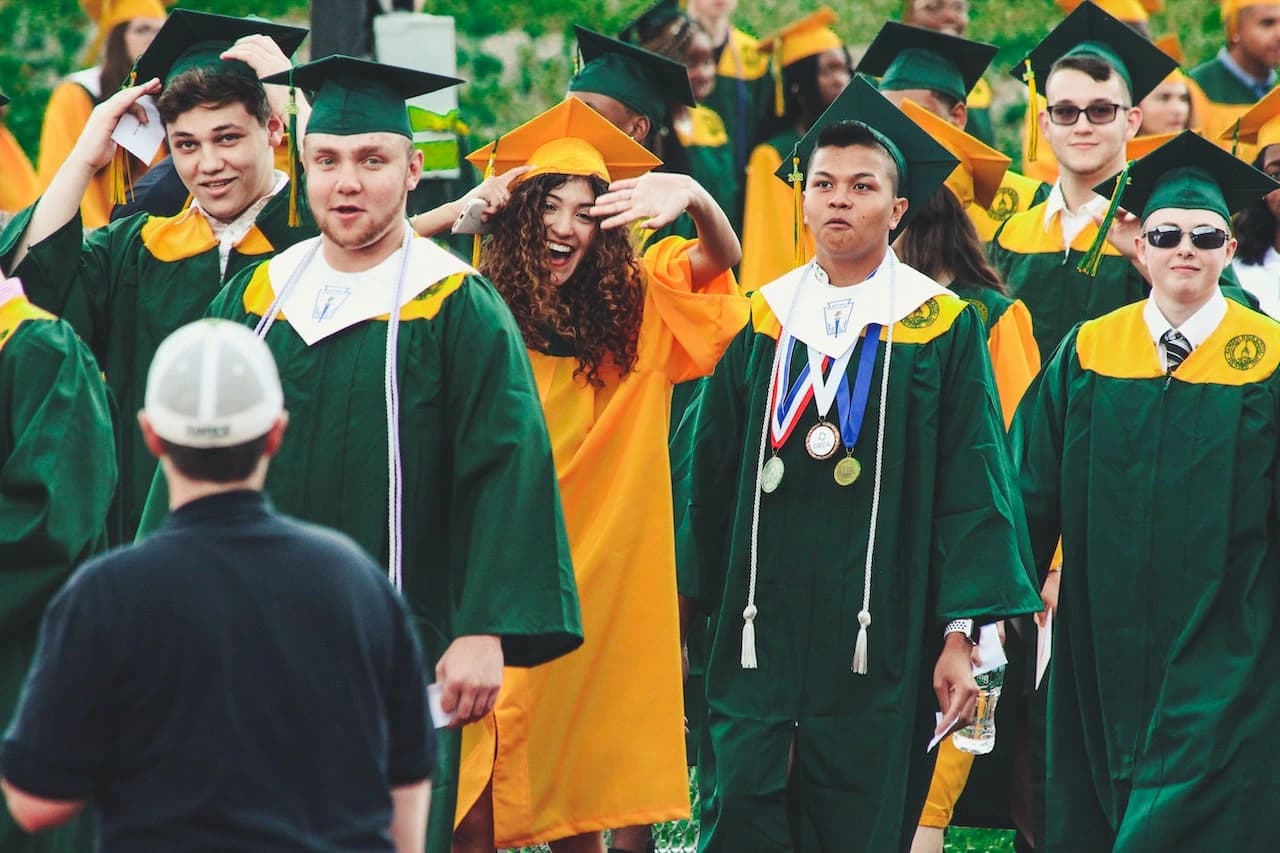Top 10 Frequently Asked Questions About US Student Visas
TABLE OF CONTENTS
- 1. What is a US student Visa?
- 2. Who is eligible for a US student visa?
- 3. How do I apply for a US student visa?
- 4. Do I need an education consultancy to apply for a US student visa or can I apply on my own?
- 5. What is the difference between an F-1 visa and an M-1 visa?
- 6. How long does it take to get a US student visa?
- 7. How much does a US student visa cost?
- 8. Can I work while on a US student visa?
- 9. Can I bring my family with me to the US on a student visa?
- 10. How long can I stay in the US on a student visa?
- 11. Can I extend my stay in the US after my student visa expires?

The United States is the best country for international students to obtain a world-class education.Obtaining a student visa for US cab be a perplexing process, but it is a necessary step toward realizing your dream of studying in the United States.In this article, we'll answer some of the most frequently asked questions about US student visas to help you better understand the process and ensure you successfully get your student visa.
1. What is a US student Visa?
A US student visa is a type of document which allows international students to study at the U.S. university. There are mainly two types of student visas: the F1 student visa is for academic students and the M1 student visa is for vocational students. The most popular student visa is F1 student visa because many students go to the U.S. to study their Bachelor's, Master's or Phd's.
2. Who is eligible for a US student visa?
Students must fulfill certain criteria to be eligible for a US student visa. The first one is to get accepted into an academic or vocational program from U.S. college or university. Then, in the student visa interivew, the student must show that they are a geniune student, intend to come back to their home country after graduation and has sufficient financial resources to support them during their stay.
3. How do I apply for a US student visa?
Before you apply for a US student visa, you need to have documents such as your passports, educational transcripts, US univeristy/college acceptance letter and I-20 and proof of financial support. Then, to apply for the US student visa, you need to fill out an online application form (DS-160 form), create an account in US Travel Docs for your country and pay a visa interview fee of $185 to schedule an appointment for student visa interview at the U.S. embassy.
4. Do I need an education consultancy to apply for a US student visa or can I apply on my own?
Yes, you can apply for a US student visa on your own without the help of an education consultancy. We RECOMMEND every student to apply by themselves so that they know US student visa application process by themselves. You can use our guide A Step-By-Step Guide to US College Application and How to Apply F1 Student Visa to self-apply.
However, if you don't want to self-apply, then you can use assistance for a reputable education consultancy. They can provide guidance and support throughout the application process, including assistance with paperwork, test preparation, and visa application. Ultimately, the decision is your to either self-apply and be independent or use education consultancy.
5. What is the difference between an F-1 visa and an M-1 visa?
An F-1 visa is for academic students studying Bachelor's, Master's or PHD's, while an M-1 visa is for vocational or training students. The requirements and restrictions for each type of visa are slightly different, so be sure to research which one is right for you before applying.
6. How long does it take to get a US student visa?
The processing time for a US student visa can vary. After gathering the necessary documents for US visa interview, it typically takes 2 to 3 months to get a visa interview appointment at the embassy. If your visa is granted in the interview, you will receive your passport with US student visa in 4 to 7 days. However, if your visa is denied, you will know the decision right after the interview.
7. How much does a US student visa cost?
As of 2023, a US student visa cost $185 to schedule for visa interview fee and $330 for SEVIS fee. This fee is non-refundable and must be paid in advance of your interview.
8. Can I work while on a US student visa?
International students with an F1 visa are eligible to work on-campus for upto 20 hours. They are not allowed to work off-campus unless they have received prior authorization. After graduation, international students are allowed to work off-campus related to their field of study for 1 to 3 years depending upon the program of study.
9. Can I bring my family with me to the US on a student visa?
Yes, your spouse and dependent children may be eligible to join you in the United States on a dependent visa, such as an F-2 visa.
10. How long can I stay in the US on a student visa?
The length of time you can stay in the United States on a student visa depends on the length of your academic program and any authorized practical training. Typically, you will be able to stay in the country for the duration of your studies, plus 60 days. For F1 students, you can stay 1 to 3 years after your graduation. For M1 students, you can stay 6 months.
11. Can I extend my stay in the US after my student visa expires?
In some cases, you may be eligible to extend your stay in the United States after your student visa expires. If you get H1-B visa from your company, then you can transfer your F1 visa to H1 and extend your visa. You can also apply your Green Card through your employer. Or, if you enroll into another program at the univeristy you can renew your F1 visa and stay in the US. This will depend on your individual circumstances and the rules of your specific program.
In conclusion, getting a US student visa can be a complex process, but with the right information and preparation, you can ensure a successful application. We hope that these frequently asked questions about US student visas have helped to shed some light on the process and get you one step closer to realizing your dream of studying in the United States.
Have Questions About This Topic?
Join our community to get personalized advice and share experiences with others going through similar visa processes.





